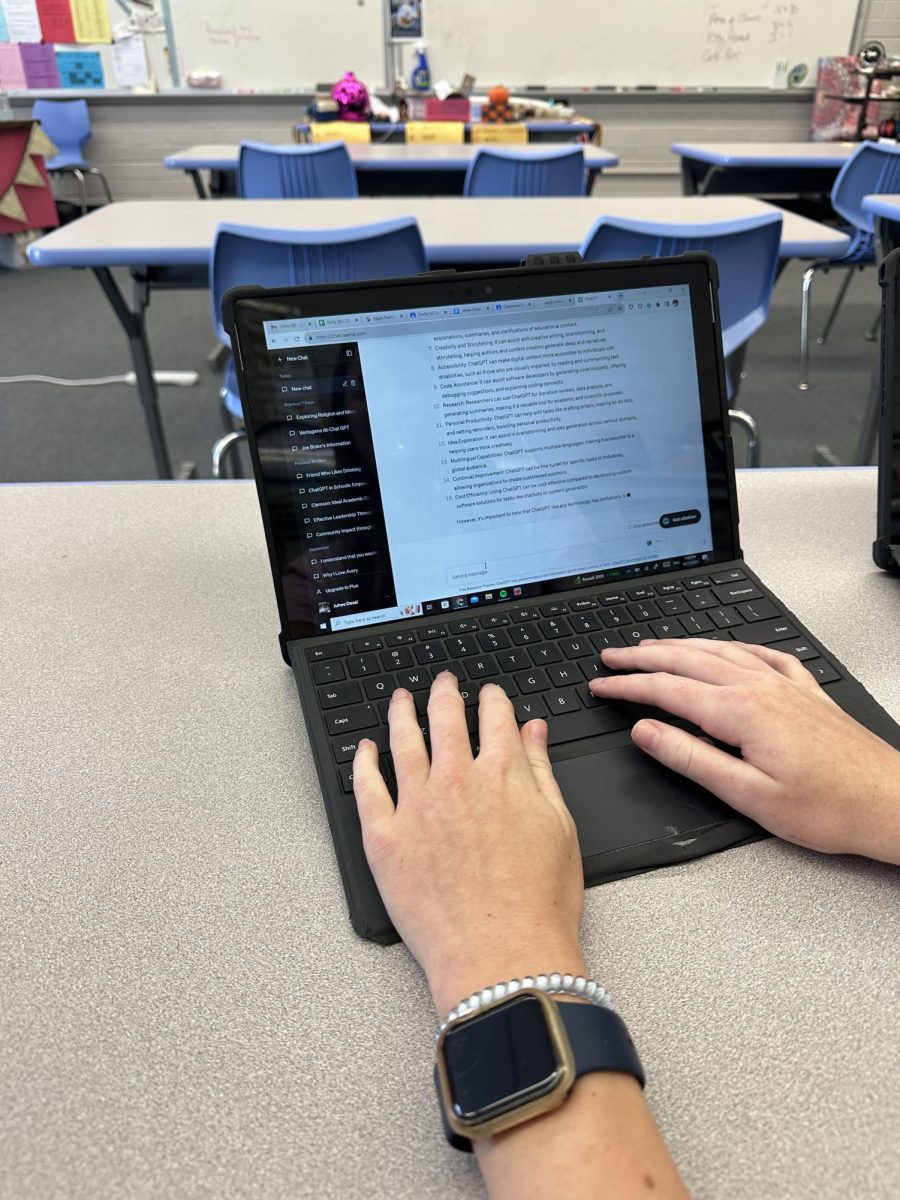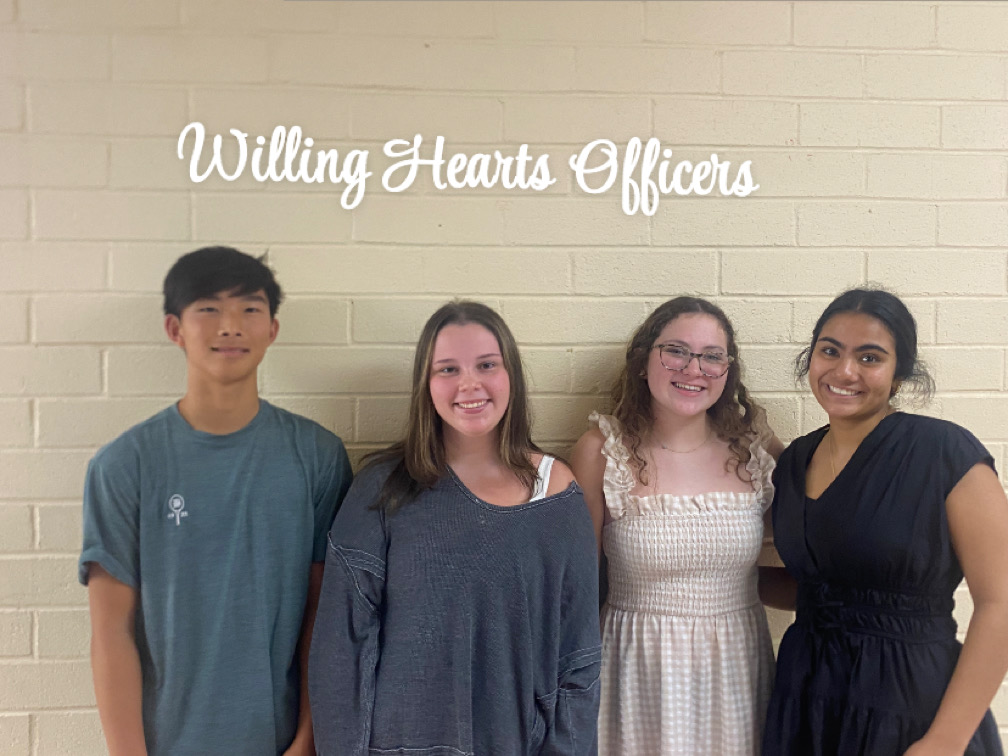This summer, I went to a program for leadership and debate in Chapel Hill, and one of the biggest topics we discussed was the role of AI Large Language Models (like ChatGPT) in the education system, so I am here to share what I learned there with you! It is only natural to wonder about the ramifications of ChatGPT and its role in our lives as students. While there are many worries surrounding this new language called AI, we shouldn’t overlook the benefits it provides as well.
ChatGPT can supplement what students learn in class. As a research tool, it can summarize and present large amounts of knowledge. For instance, a student who wants to know more about something mentioned in class can ask AI to tell them more about that topic, extending learning beyond the classroom. In addition to providing information, the program can help students develop their skills in math and composition. I have personally used it before to rewrite a choppy sentence by putting it in the chat and asking it to make my sentence flow better.
ChatGPT can also provide students with extra help they cannot find elsewhere, offering personalized tutoring in subjects such as math, recognizing an individual’s student’s strengths and weaknesses, and providing them with 24/7 support. ChatGPT can create a more inclusive and accessible learning environment for students with disabilities. It has text-to-speech capabilities and can facilitate communication for students with speech and language issues.
Not only can ChatGPT help students, but it can also help teachers with automated, routine tasks such as grading objective assignments and answering frequently asked questions, which could free up their time to help focus on interactive and personalized teaching. For instance, instead of a math teacher having to hand grade multiple assignments, they could spend that time tutoring a student who needs extra help with a concept.
While there are multiple benefits, we must recognize the possible limitations of using a technology such as this one. Overall reliance on ChatGPT can be detrimental to young students’ development of problem-solving skills and independent thinking. ChatGPT also lacks the emotional intelligence and empathy that human educators provide. Think about recommendations. A student needs to have close contact with at least a few teachers in order to have a good recommendation written. Many students become emotionally bonded with teachers, and through the confusing years of high school, these teachers provide a safe space for them to express themselves. However, if students never build this connection, it could lead to problems since ChatGPT cannot fully address students’ emotional and social needs.
Another possible issue is that excessive use of ChatGPT may lead to reduced interactions among students. For example, instead of a student turning to their friend in study hall and asking for help on a question, they could just put it into Chat GPT instead. While this seems insignificant, complete reliance on ChatGPT could lead to deteriorating interpersonal skills over time. Human interaction is crucial for developing social skills, empathy, teamwork abilities, and effective communication, all of which are essential for college and life outside of school.
In addition, there are ethical concerns related to data privacy and the responsible use of AI in educational settings. Protecting students’ data and ensuring that AI technology is used responsibly are significant challenges that cannot be overlooked. For example, according to Search Engine Journal, “over 100,000 OpenAI ChatGPT account credentials were compromised and sold on dark web marketplaces from June 2022 to May 2023.”
Another potential downside is that ChatGPT may inadvertently reinforce biases and perpetuate stereotypes, presenting a distorted view of various subjects and perspectives. Multiple times, ChatGPT has been shown to have more left-leaning (liberal) views, which could influence growing students if this becomes their main source of knowledge.
Clearly, there are pros and cons that both need to be considered and weighed. While there are many benefits that ChatGPT may provide within the educational system, there are also issues that may need to be addressed before bringing it into our classrooms. As Chat GPT itself states, “While AI chatbots like ChatGPT offer these advantages, it’s important to note that they may not be suitable for all use cases. They work best for tasks that involve repetitive and rule-based interactions. For complex, highly personalized, or emotionally sensitive issues, human interaction is often irreplaceable.”













